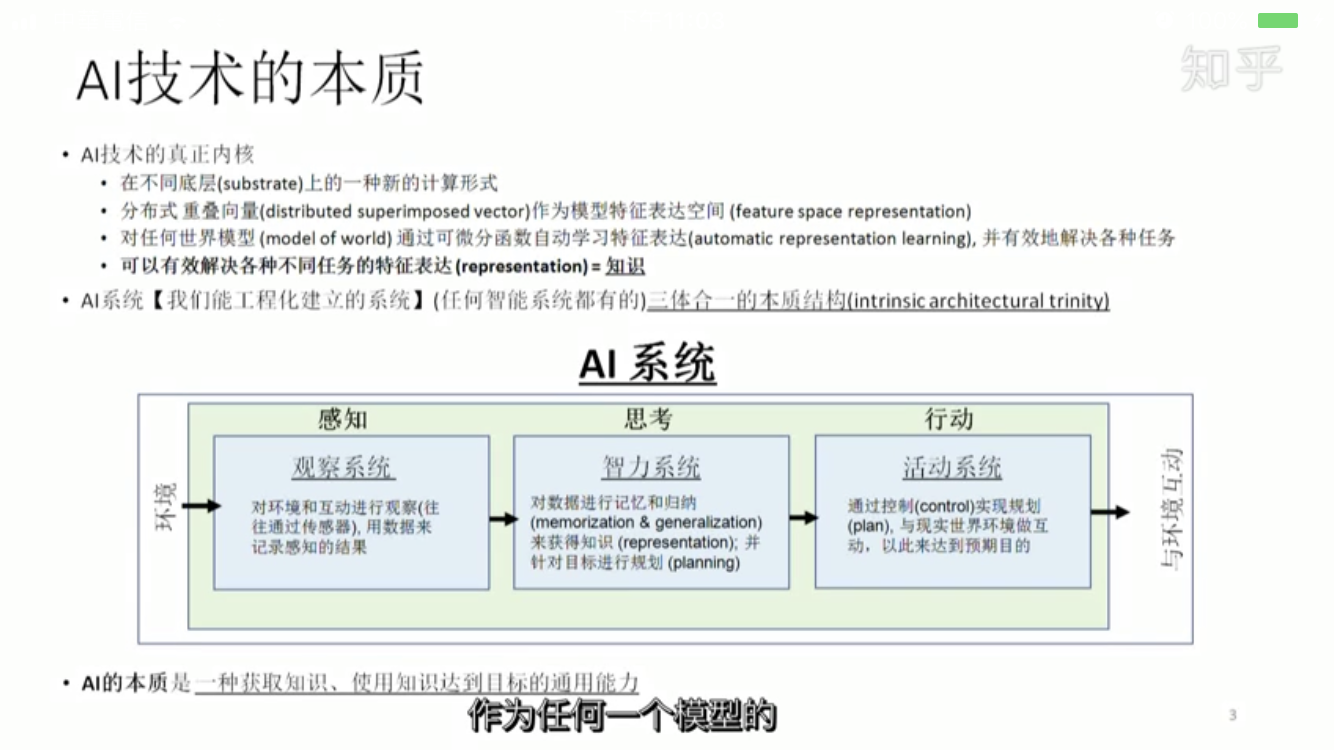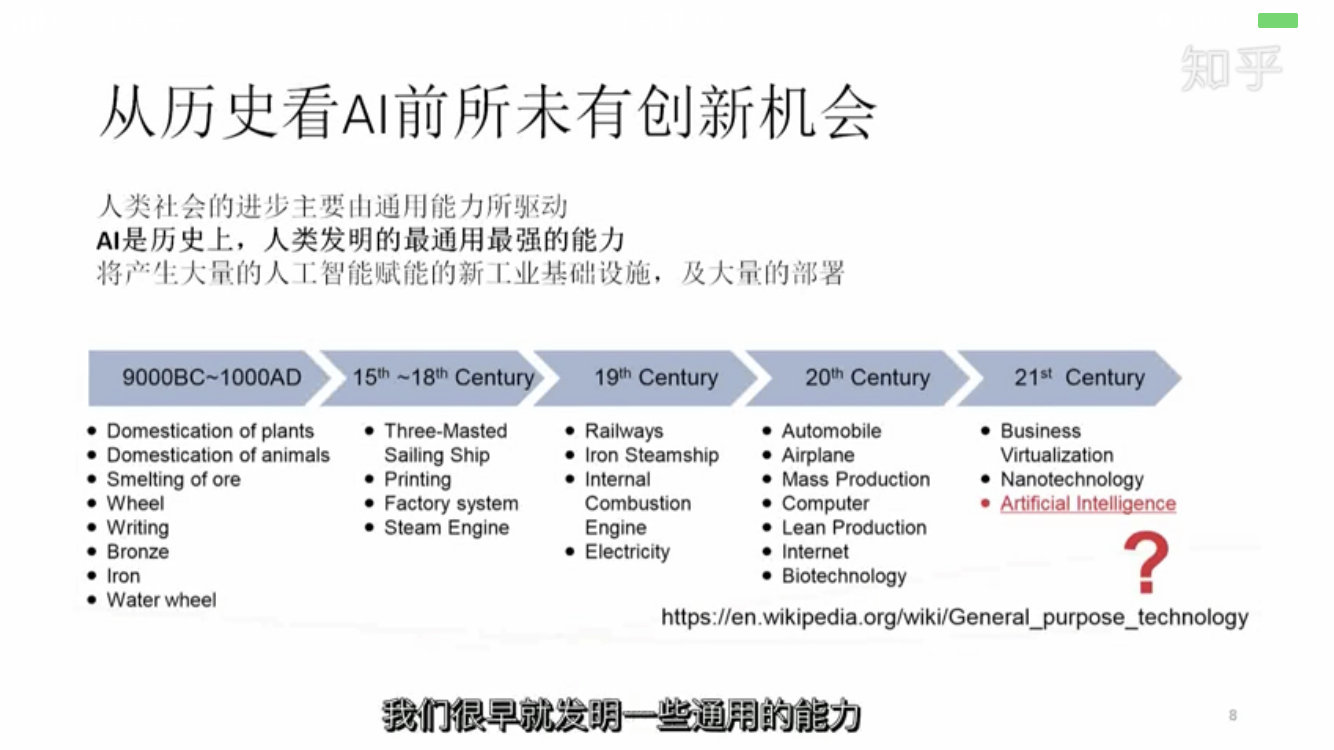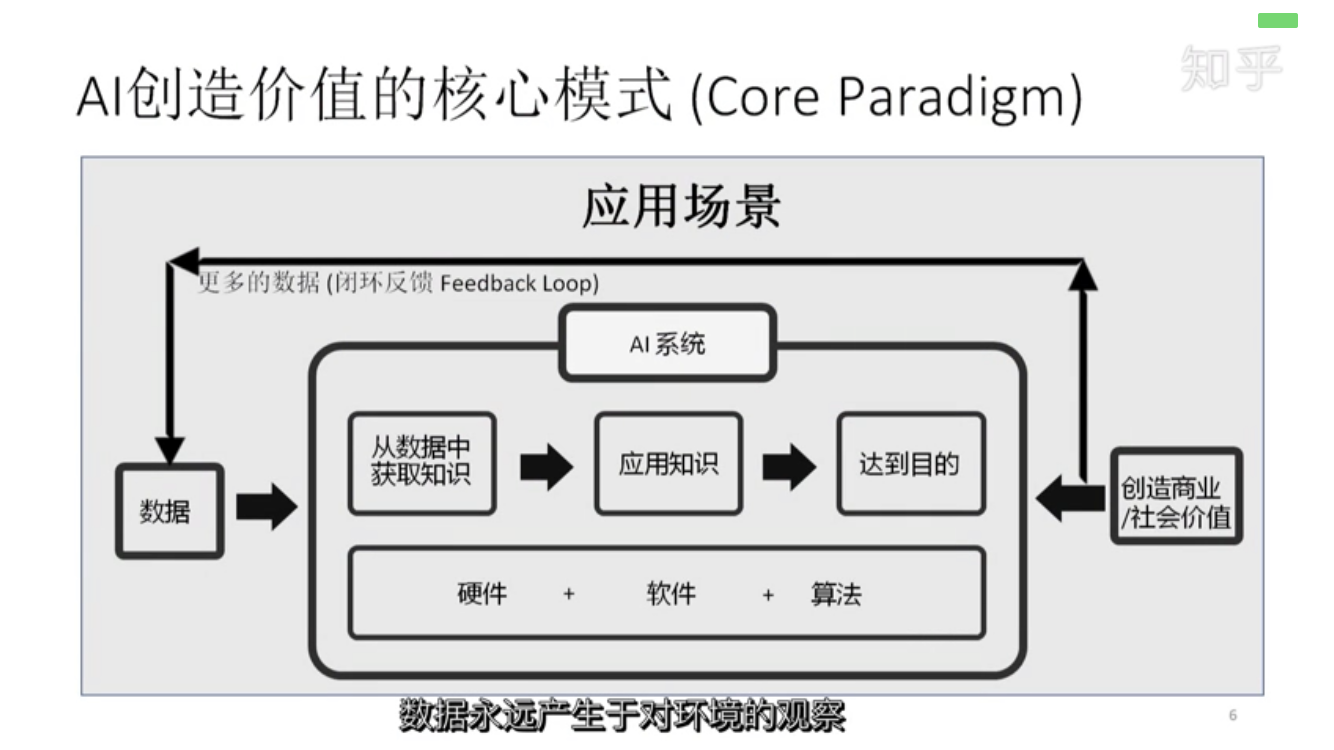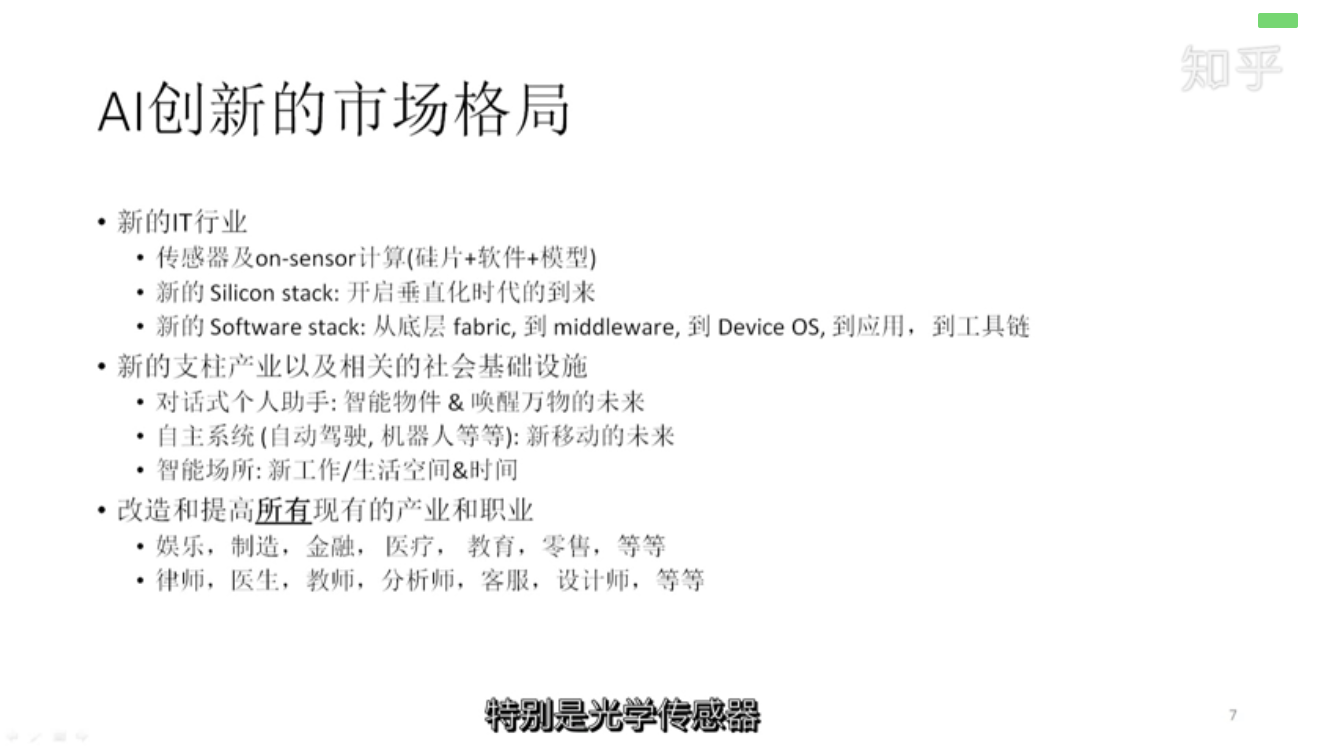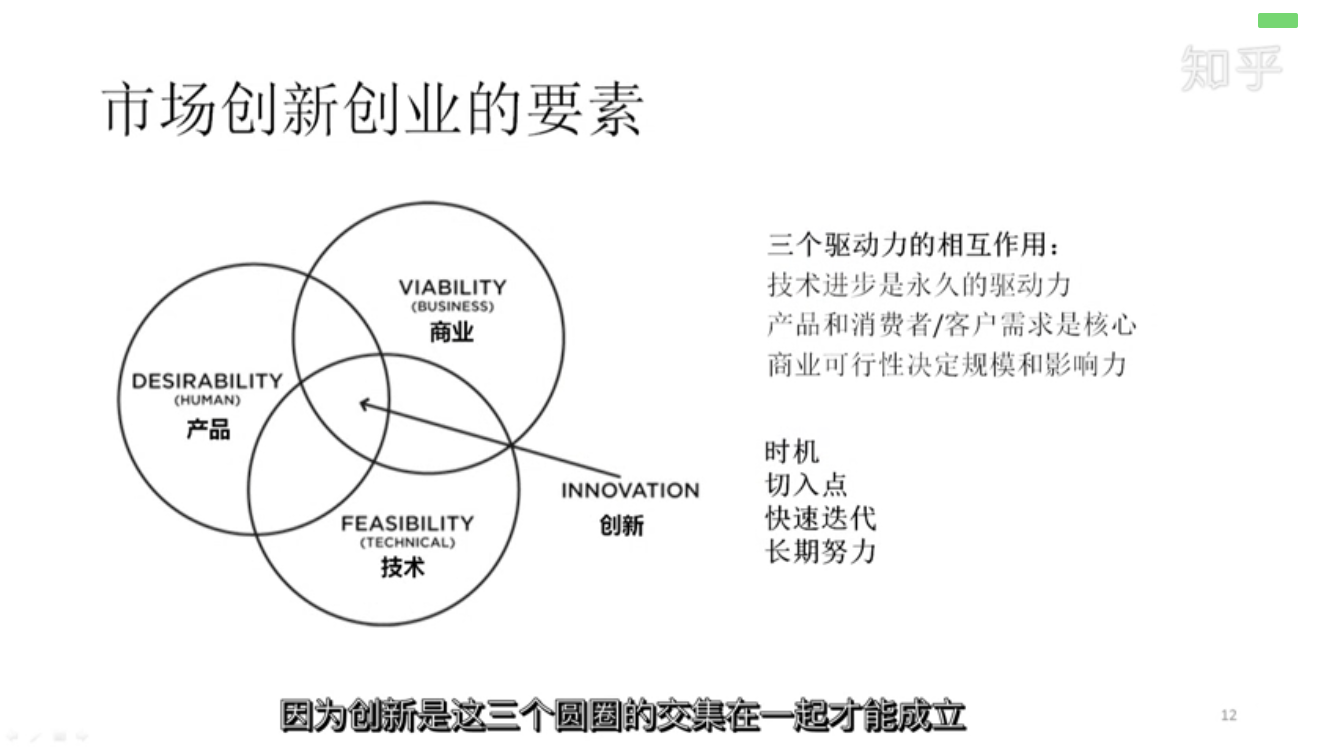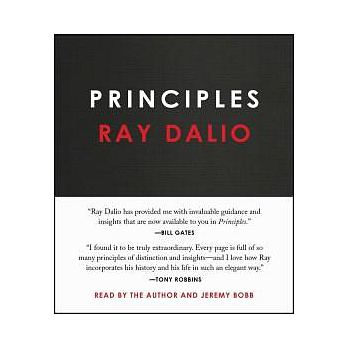
這本書是由橋水集團創辦人Ray Dalio所寫,會知道Ray Dalio是因為之前看到youtube上面史丹佛商學院的大師訪談(View From The Top)中看了一場關於他的訪談集。這本書很扎實,字字都直得省思和實踐,佩服能以這態度去生活。
這本書分三大部分:介紹、Life Principles、Work Principles
第一部分主要是Ray Dalio介紹自己的生命歷程,直白且具有參考價值,呼應他自己關於radical transparant的原則。
第二部分 Life Principles
Life Principles
擁抱現實
1. Embrace Reality and Deal with it
1.1 Be a hyper-realist
1.2 Truth – accurate understanding of reality is the esential foundation for any good outcome.
1.3 Be radically open-minded and radically transparent.
1.4 Look to nature to learn how reality work
1.5 Evolving is life’s greatest accomplishment and its greatest reward
1.6 Understand nature’s practical lessons
1.7 Pain + Reflection = Progress
1.8 Weigh second- and third-order consequences.
1.9 Own your outcomes.
1.10 Look at the machine from the higher level.
2. Use the 5-step Process to Get What You Want Out of Life
2.1 Have clear goals.
2.2 Identify and don’t tolerate problems.
2.3 Diagnose problems to get at their root causes.
2.4 Design a plan.
2.5 Push through to completion.
2.6 Remember that weakness don’t matter if you find solutions.
2.7 Understand your own and other’s mental maps and humility.
3. Be radically open-minded
3.1 Recognize your two barriers
3.2 Practice radical open-mindedness
3.3 Appreciate the art of thoughtful disagreement
3.4 Triangulate your view with believable people who are willing to disagree
3.5 Recognize the signs of closed-mindedness and open-mindedness that you should watch out for
3.6 Understand how you can become radically open-minded
4.Understand that people are wired very differently
4.1 Understand the power that comes from knowing how you and others are wired
4.2 Meaningful work and meaningful relationships aren’t just nice things we chose for ourselves – they are genetically programmed into us
4.3 Understand the great brain battles and how to control them to get what “you" want
4.4 Find out what you and others are like.
4.5 Getting the right people in the right roles in support of your goal is the key to succeeding at whatever you choose to accomplish
5.Learn how to make decisions effectively
5.1 Recognize that 1) the biggest threat to good decsion making is harmful emotions, and 2) decision making is a two-step process
5.2 Synthesize the situation the situation at hand
5.3 Synthesize the situation through time.
5.4 Navigate levels effectively
5.5 Logic, reason, and common sense are your best tools for synthesizing reality and understanding what to do about it
5.6 Make your decisions as expected value calculations
5.7 Prioritize by weighing the value of additional information against the cost of not deciding.
5.8 Simplify!
5.9 Use principles
5.10 Believability weight your decision making
5.11 Convert your principles into algorithms and have the computer make decisions alongside you
5.12 Be cautious about trusting AI without having deep understanding
Work Principles
- An organization is a machine consisting of two major parts: culture and people
- Tough love is effective for achieving both great work and great relationships
- A believability-weighted idea meritocracy is the best system for making effective decisions
- Make your passion and tour work one and the same and do it with people you want to be with
To get the culture right
- Trust in Radical Truth and Radical Transparency
- realize that you have nothing to fear from knowing the truth.
- have integrity and demand it from others
- create an environment in which everyone has the right to understand what makes sense and no one has the right to hold a critical opinion without speaking up
- be radically transparent
- meaningful relationships and meaningful work are mutually reinforcing, especially when supported by radical truth and radical transparency
- Cultivate Meaningful work and Meaningful Relationships
- be loyal to the common mission and not to anyone who is not operating consistently with it
- be crystal clear on what the deal is
- recognize that the size of the organization can pose a threat to meaningful relationships
- remember that most people will pretend to operate in your interest while operating in their own
- treasure honorable people who are capable and will treat you well even when you’re not looking
- Create a culture in which it is okay to make mistakes and unacceptable not to learn from them
- recognize that mistakes are a natural part of the evolutionary process
- dont worry about looking good – worry about achieving your goals
- ovserve the patterns of mistakes to see if they are products of weaknesses
- remember to reflect when you experience pain
- know what types of mistakes are acceptable and what work for you to make the unacceptable ones
- Get and Stay in Sync
- recognize that conflicts are essential for great relationships because they are how people determine whether their principles are aligned and resolve their difference
- know how to get in sync and disagree well
- be open-minded and assertive at the same time
- if it is your meeting to run, manage the conversation
- great collaboration feels like playing jazz
- when you have alignment, cherish it
- if you find you can’t reconcile major differences – especially in values – consider whether the relationship is worth preserving
- Believability weight your decision making
- recognize that having an effective idea meritocracy requires that you understand the merit of each person’s ideas
- find the most believable people possible who disagree with you and try to understand their reasoning
- think about whether you are playing the roles of a teacher, a student, or a peer and whether you should be teaching , asking questions, or debating
- understanding how people came by their opinions
- disagreeing must be done efficiently
- recognize that everyone has the right and responsibility to try to make sense of important things
- pay more attention to whether the decision-making system is fair that whether you get your way
- Recognize how to get beyond disagreements
- remember: principles can’t be ignored by mutual agreement
- make sure people don’t confuse the right to complain, give advice, and openly debate with the right to make decisions
- Don’t leave important conflicts unresolved
- once a decision is made, everyone should get behind it even though individuals may still disagree
- remember that if the idea meritocracy comes into conflict with the well-being of the organization, it will inevitably suffer
- recognize that if the people who have the power don’t want to operate by principles, the principled way of operating will fail
- Remember that the WHO is more important than the WHAT
- recognize that the most important decision for you to make is who you choose as your Responsible Parties
- Know that the ultimate responsible party will be the person who bears the consequences of what is done
- remember the force behind the thing
- Hire right, because the penalties for hiring wrong are huge
- match the person to the design
- remember that people are built very differently and that different ways of seeing and thinking make people suitable for different jobs
- think of your teams the way that sports managers do: no one person possesses everything required to produce success, yet everyone must excel
- pay attention to people’s track records
- don’t hire people just to fie the first job they will do; hire people you want to share your life with
- when considering compensation, provide both stability and opportunity
- remember that in great partnerships, consideration and generosity are more important than money
- great people are hard to find so make sure you think about how to keep them
- Constantly train, test, evaluate, and sort people
- understand that you and the people you manage will go through a process of personal evolution
- provide constant feedback
- evaluate accurately, not kindly
- recognize that tough love is both the hardest and the most important type of love to give
- don’t hide your observations about people
- make the process of learning what someone is like open, evolutionary and iterative
- knowing how people operate and being able to judge whether that way of operating will lead to good results is more important that knowing what they did
- recognize that when you are really in sync with someone about their weaknesses, the weaknesses are probably true.
- Train, guardrail, or remove people; don’t rehabilitate them.
- remember that the goal of a transfer is the best, highest use of the person in a way that benefits the community as a whole
- Don’t lower the bar
- Manage as Someone operating a machine to achieve a goal
- Look down on your machine and yourself within it from the higher level
- remember that for every case you deal with, your approach should have two purposes: 1). to move you closer to your goal, and 2). to train and test your machine
- understand the differences between managing, micromanaging, and not managing
- know what your people are like and what makes them tick, because your people are your most important resource
- clearly assign responsibilities
- probe deep and hard to learn what you can expect from your machine
- think like an owner, and expect the people you work with to do the same
- recognize and deal with key-man risk
- don’t treat everyone with same – treat them appropriately
- know that great leadership is generally not what it’s made out to be
- hold yourself and your people accountable and appreciate them for holding your accountable
- communicate the plan clearly and have clear metrics conveying whether you are progressing according to it
- escalate when you can’t adequately handle your responsibilities and make sure that the people who work for you are proactive about doing the same
- Perceive and don’t tolerate problems
- if you’re not worried, you need to worry – and if you’re worried, you don’t need to worry
- design and oversee a machine to perceive whether things are good enough or not good enough, or do it yourself
- be very specific about problems; don’t start with generalizations
- Don’t be afraid to fix the difficult things
- Diagnose Problems to Get at Their Root Causes
- To diagnose well, ask the following questions: 1. is the outcome good or bad? 2. who is responsible for the outcome? 3. if the outcome is bad , s the responsible party incapable and is the design bad?
- Maintain an emerging synthesis by diagnosing continuously
- keep in mind that diagnoses should produce outcomes
- use the following “drill-down" technique to gain an 80/20 understanding of a department of sub-department that is having problems
- understand that diagnosis is foundation to both progress and quality relationship
- Design improvements to your machine to get around your problems
- Design Improvements to Your Machine to Get Around Your Problems
- Build your machine
- Systemize your principles and how they will be implemented
- remember that a good plan should resemble a movie scrip
- recognize that design is an iterative process. Between a bad “now" and a good “then" is a “working through it" period
- build the organization around goals rather than task.
- Create an organizational chart to look like a pyramid, with straight lines down that don’t cross
- Create guardrails when needed – and remember it’s better not to guardrail at all
- Keep your strategic vision the same while making appropriate tactical changes as circumstances dictate
- Have good controls so that you are not exposed to the dishonesty of others
- Have the clearest possible reporting lines and delineations of responsibilities
- Remember that almost everything will take more time and cost more money than you expect
- Do what you set out to do
- Work for goals that you and your organization are excited about and think about how you tasks connect to those goals
- Recognize that everyone has too much to do
- Use checklists
- Allow time for rest and renovation
- Ring the bell
- Use tools and Protocols to shape how work is done
- Having systemized principles embedded in tools is especially valuable for an idea meritocracy
- And for heaven’s sake, Don’t overlook governance
- To be successful, all organizations must have checks and balances
- Remember that in an idea meritocracy a single CEO is not as good as a great group of leaders
- No governance system of principles, rules, and checks and balances can substitute for a great partnership
待續
